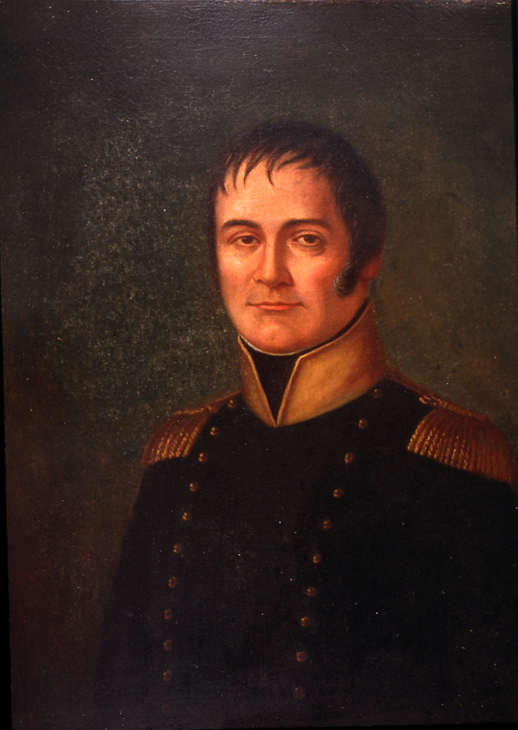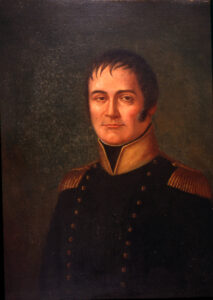Jacques Philippe Villeré
Jacques Villeré was the first native-born governor of Louisiana, serving from 1816 until 1820.

Courtesy of Louisiana State Museum
Governor Jacques Phillipe Villeré. Molinary, Andres (Artist)
Jacques Villeré was the first native-born governor of Louisiana, serving from 1816 until 1820. Before Villeré became governor, he was named to the staff of Pierre Clément Laussat, the last French governor, to assist with the colony’s transition from French to American control after the Louisiana Purchase (1803). Villeré is perhaps best-known as the owner of the plantation where the British established themselves to begin the campaign of the Battle of New Orleans (1815).
Jacques Phillippe Villeré was born on the Jefferson Parish plantation of his maternal grandfather on April 28, 1761. He was the son of Joseph Antoine Villeré, captain of the German Coast militia, and Louise Marguerite de La Chaise. When Villeré was a young child, his father was executed for participating in the Insurrection of 1768, an attempt to prevent the Spanish takeover of Louisiana. Jacques Villeré was then sent to France, where he trained as a page in the court of Louis XVI and was commissioned as an artillery officer in St. Domingue at age eighteen. After the death of his mother, Villeré returned to Louisiana in 1782, where he settled as a landowner. He married Jeanne Henriette de Fazende on August 18, 1784, at St. Louis Cathedral in New Orleans.
After serving as member of the first state constitutional convention in 1811, Villeré ran for governor but lost to William C. C. Claiborne. Four years later, however, Villeré was elected to this office and assumed the governorship in 1816. During Villeré’s term, the population of Louisiana increased dramatically, as did the region’s economic prosperity. Sugar and cotton crops fueled this success, and Louisiana took advantage of its new, unchallenged control of the Mississippi River for trade. Villeré helped guide Louisiana through this new prosperity, often mediating disputes between the Creoles and Americans.
His administration was also noted for its efforts to provide bankruptcy for debtors, reduce the state’s debt, and make dueling a capital offense. Though duels had often been used to settle disputes in Louisiana, Villeré restricted the practice by enforcing the death penalty for the winner of a duel if it could be proved that he instigated it. Villeré made Louisiana law more accessible to its residents by publishing it in both French and English.
As the law was written at the time, Villeré could not succeed himself. He ran again in 1824, but lost to Henry Johnson due to a split in the Creole vote. He retired to his plantation and devoted himself to his family until his death on March 7, 1830.
This entry was adapted from Joseph G. Tregle’s entry for the Dictionary of Louisiana Biography, a publication of the Louisiana Historical Association in cooperation with the Center for Louisiana Studies at the University of Louisiana, Lafayette. http://www.lahistory.org
